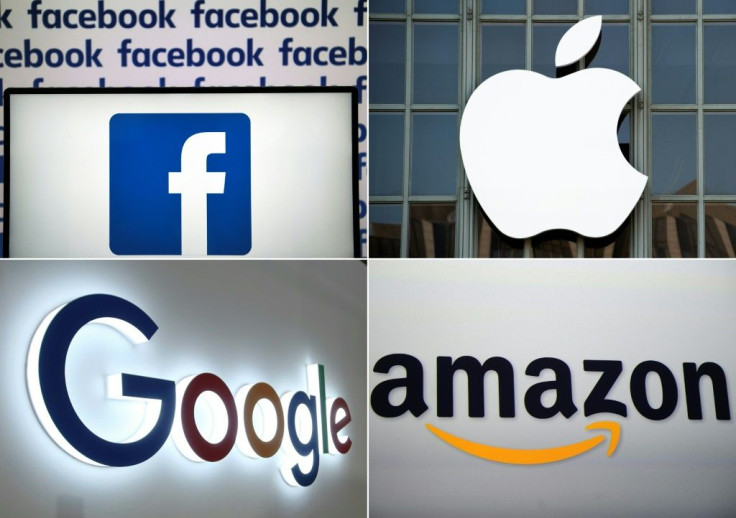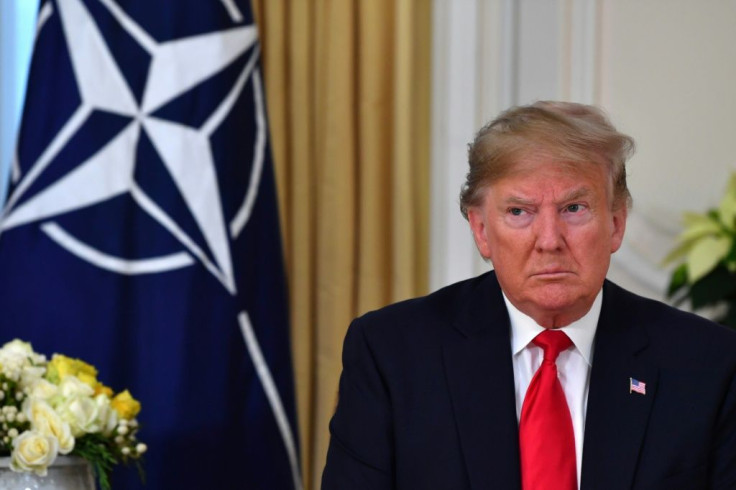France, US Seek To Avert Trade War In Digital Tax Row

France and the United States on Tuesday said they would seek to ward off a trade war after Washington threatened tariffs on French products ranging from sparkling wine to handbags and Paris warned of retaliation backed by the entire EU.
The French parliament infuriated the administration of President Donald Trump in July by adopting a law taxing digital firms like Google, Apple, Facebook and Amazon for revenues earned inside the country.
Talks to resolve the issue have so far failed, and on Monday Washington threatened to impose tariffs of up to 100 percent on $2.4 billion in French goods including champagne, cosmetics, yoghurt and Roquefort cheese.
"We were in contact yesterday with the European Union to ensure that if there are new American tariffs there will be a European response, a strong response," French Finance Minister Bruno Le Maire told Radio Classique.
The EU backed up his comments, with commission spokesman Daniel Rosario saying that "as in all other trade-related matters the EU will act and react as one and it will remain united."
The full list of French products subject to potential duties includes cosmetics, porcelain, soap, handbags, kitchen equipment, butter and several kinds of cheeses, including Roquefort, Edam and Gruyere.
But despite Trump's repeated threats to retaliate against French wines, only sparkling wine like Champagne made the tariff list.
The measures could be imposed after January 14, the last date set by the US authorities for comments on the action.

But speaking at talks with Macron at the NATO summit in Britain, Trump said that the US had a "lot of trade" with France and that the dispute was "minor".
"I think we'll probably be able to work it out, but we have a big trade relationship and I'm sure that within a short period of time things will be looking very rosy," he said.
He had earlier condemned the French tax while insisting he was "not in love with those companies, Facebook, Google, all of them".
"They're our companies, they're American companies, I want to tax them, those companies. They're not going to be taxed by France... It was totally out of the blue, Emmanuel just had an idea, to tax those companies," he said.

The US president was already on the warpath against Macron over his recent comments that NATO was experiencing "brain death," which Trump said were "very, very nasty".
The Organization for Economic Cooperation and Development (OECD) put forward initial proposals in October for a "unified approach" in the hope of reaching an agreement next year.
Cedric O, France's secretary of state for the digital economy, told AFP in Washington that France believed there was still time to stave off the threat of tariffs.
"The first and foremost objective that we have is to strike a deal at the OECD," he said, insisting that the current row was "not the end of the story".
He said France needed to explain to the US that it was not a discriminatory tax but one that applied to "every company that has a digital business model, be it an American, Chinese or European company."
France, backed by Britain and others, argues that multinational digital giants must pay taxes on revenues accrued in a country even if their physical headquarters is elsewhere. But Washington says that US companies have been singled out.
The decision "sends a clear signal that the United States will take action against digital tax regimes that discriminate or otherwise impose undue burdens on US companies," US Trade Representative Robert Lighthizer said in a statement Monday.
The French tax imposes a three percent levy on the revenues earned by technology firms in France, which often come from online advertising and other digital services.
It targets revenue instead of profits, which are often reported by tech giants in low-tax jurisdictions like Ireland or Luxembourg in a practice that has enraged governments.
This could affect the EU's ability to respond in a united fashion, with smaller states where the companies have their headquarters less enthusiastic about the tax.
The dispute risks opening another front for the United States in a succession of trade disputes.
The US and China are already embroiled in a trade war, and Trump said this week that tariffs would be reinstated on Argentina and Brazil, accusing them of manipulating their currencies and hurting US farmers.
© Copyright AFP 2024. All rights reserved.





















